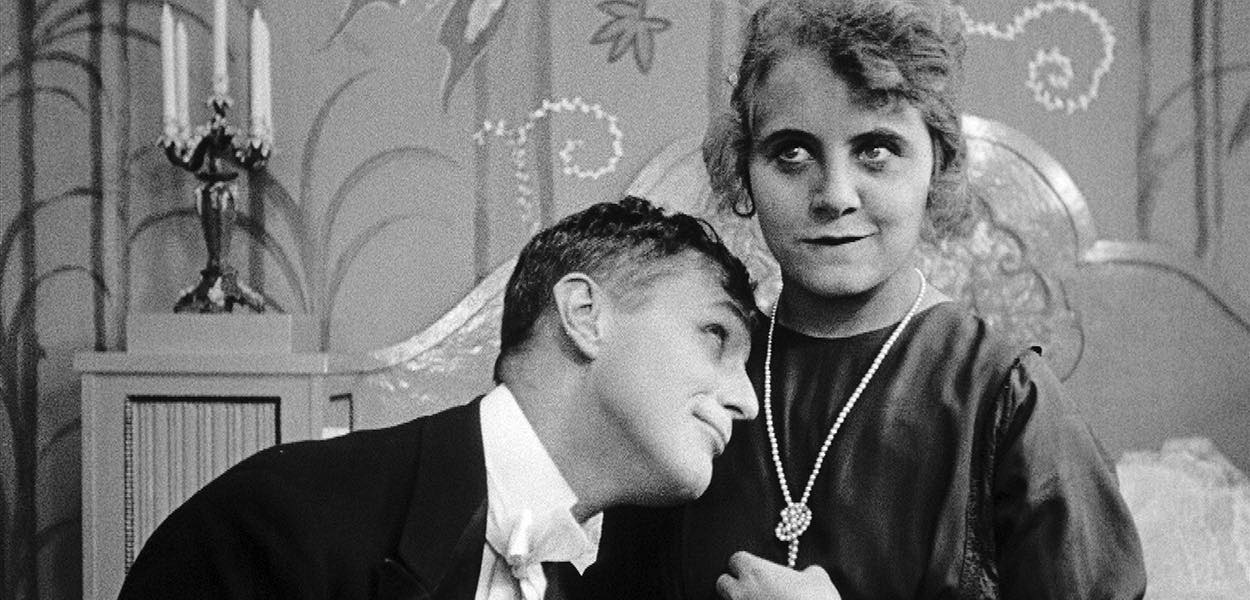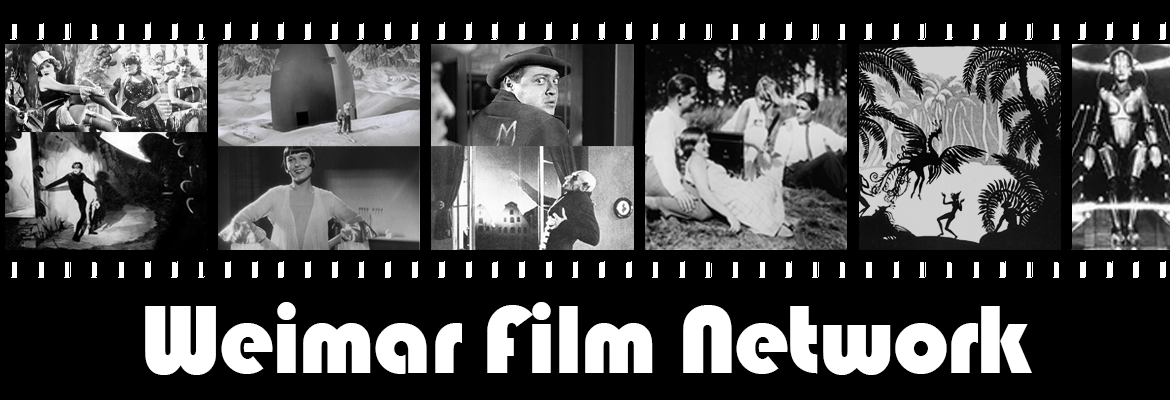
© Die Austernprinzessin (Ernst Lubitsch, 1919)
“Now THAT impresses me!” Review of Die Austernprinzessin (The Oyster Princess, 1919)
Thomas Double, King’s College London
A genre dominated by clowns and tramps, slapstick comedy is often considered a “low art”. Narratives are motivated by violence, gags are socially subversive and often challenging to contemporary tastes and mores, and characters – like Chaplin’s “Little Tramp” – more often than not occupy the lowest social stratum. On the contrary, Ernst Lubitsch’s Die Austernprinzessin (The Oyster Princess), a sharply satirical “Grotesque Comedy in Four Acts”, takes the brush strokes of slapstick and applies them liberally to the upper classes. This comedy of (bad) manners owes more to the early French high-society slapstick of Max Linder than to Charlie Chaplin; perhaps this kind of humour played better in Europe.
Lubitsch’s characters, in spite of (or perhaps owing to) their status, are boorish, selfish, incompetent, lustful swindlers who surround themselves with opulence and excess. Their world is propped up by a legion of robotic servants who move in a huge ballet, in which every aspect of life becomes automated for the ruling class. And yet, at the same time, these characters are immensely likeable, and the film leaves such an irresistibly sweet taste in the mouth of the viewer that the satire slips through almost unnoticed, at least if not for Lubitsch’s winkingly self-conscious punchlines, often delivered directly to camera.
The plot is a relatively simple farce but provides a foundation for several solid comic performances. Mister Quaker (Victor Janson), the “Oyster King of America”, is a severe man; “That doesn’t impress me at all,” is his catchphrase. Quaker is disturbed in the middle of his business by the raging of his daughter Ossi (Ossi Oswalda), in the process of destroying the living room. She explains to her father that the daughter of Mr. Blakpott, “the Shoe Polish King”, has married a count. Determined to not be outdone, (but caring little for his daughter’s desires), Quaker sends a missive to the bumbling matchmaker Seligson, requesting “a son-in-law with a pedigree in accordance with my oysters”. Seligson naturally selects Prince Nucki (Harry Liedtke), a disgraced royal heavily in debt and disinclined to marriage (what a catch!) When Nucki sends his dim-witted envoy, Josef (Julius Falkenstein), to Quaker’s residence in his stead, Ossi assumes he is the prince, and thus the farce begins.
It’s a typical Lubitsch film, with excessive consumption, grotesque intoxication, subversive sexuality, scandalous nights on the town, and – spoiler alert – a happy ending in which sex is legitimated through marriage. It’s a pointedly European version of silent comedy, depicting the oafish American industrialist and his materialistic daughter with venomous parody; the potent and dashing Nucki, in contrast, is apparently German. The film’s women (more accurately, woman) are interesting: the shrew nightmare Ossi certainly complicates a feminist analysis, but she has a certain agency in her openly expressed, powerful sexual appetite. She’s also hopelessly incompetent in her gender role. In an early scene, while instructing Ossi in “the ways of marriage”, a maid exasperatedly tries to show her how to bathe a model baby. To the servant’s horror, she holds it by the ankles and tries to shake the water off. “Well, children really shouldn’t be coddled,” she says. Later scenes depict women boxing each other, a rare sight in the silent era. As always when it comes to subversive content in comedy, however, it’s a trade-off: by rendering this liberated behaviour as comic, the film risks merely reinforcing the values it challenges. Lubitsch, always the populist, is adept at knowing exactly where to toe the line so that his films are just edgy enough to be appealing without causing outrage. It’s in this respect that Chaplin outshines Lubitsch as a filmmaker; he wasn’t afraid of courting controversy if it meant he could say the things he wanted.
More time could have been afforded, for instance, to the experience of Quaker’s nameless servants, who in their multitude and their synchronicity become almost non-characters, acting as pieces of furniture in the opulent mansion. In the memorable but all-too-brief banquet sequence, Lubitsch affords us a glimpse backstage. A montage reveals a huge conveyor belt of a kitchen, where the aristocrats’ dinner is prepared by hundreds of disembodied hands behind closed doors, until the guests suddenly burst into a “foxtrot epidemic” and the rhythms of work give way to the sexual charge of the dance. Quaker’s mansion is a precursor to the kind of world that would be parodied by Chaplin in Modern Times, but where Chaplin renders industrial society terrifying, placing us in the perspective of the downtrodden workers, in Die Austernprinzessin it is burlesqued, rendered hilarious and almost appealing, as we follow the petty troubles of the aristocracy. Lubitsch’s mastery of comic rhythm, which would become his trademark, is evident here already. But it’s easy to see how a society who could delight in such images – for whom fascism was looming on the horizon – might have missed the dangerous potential of the machine.

